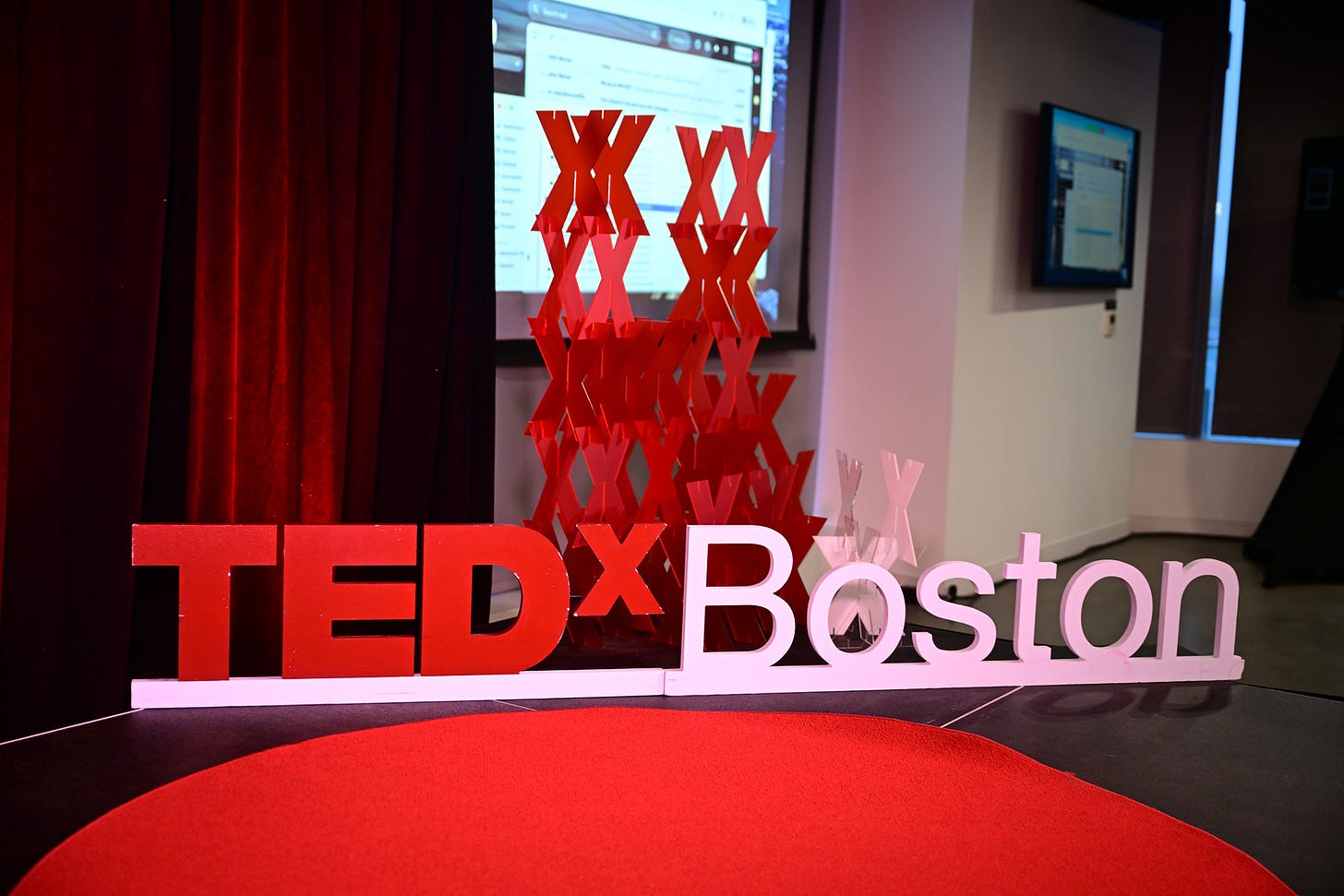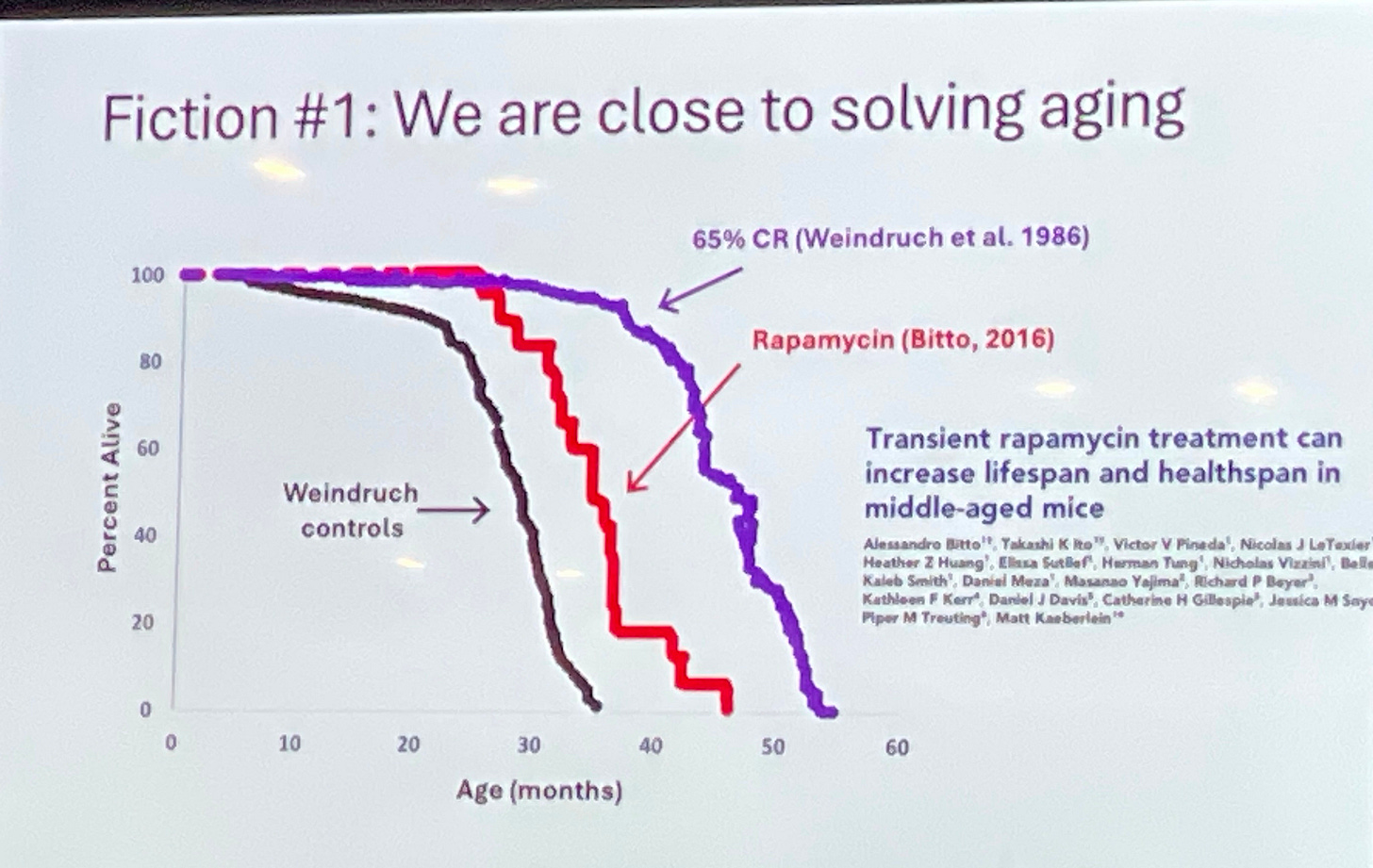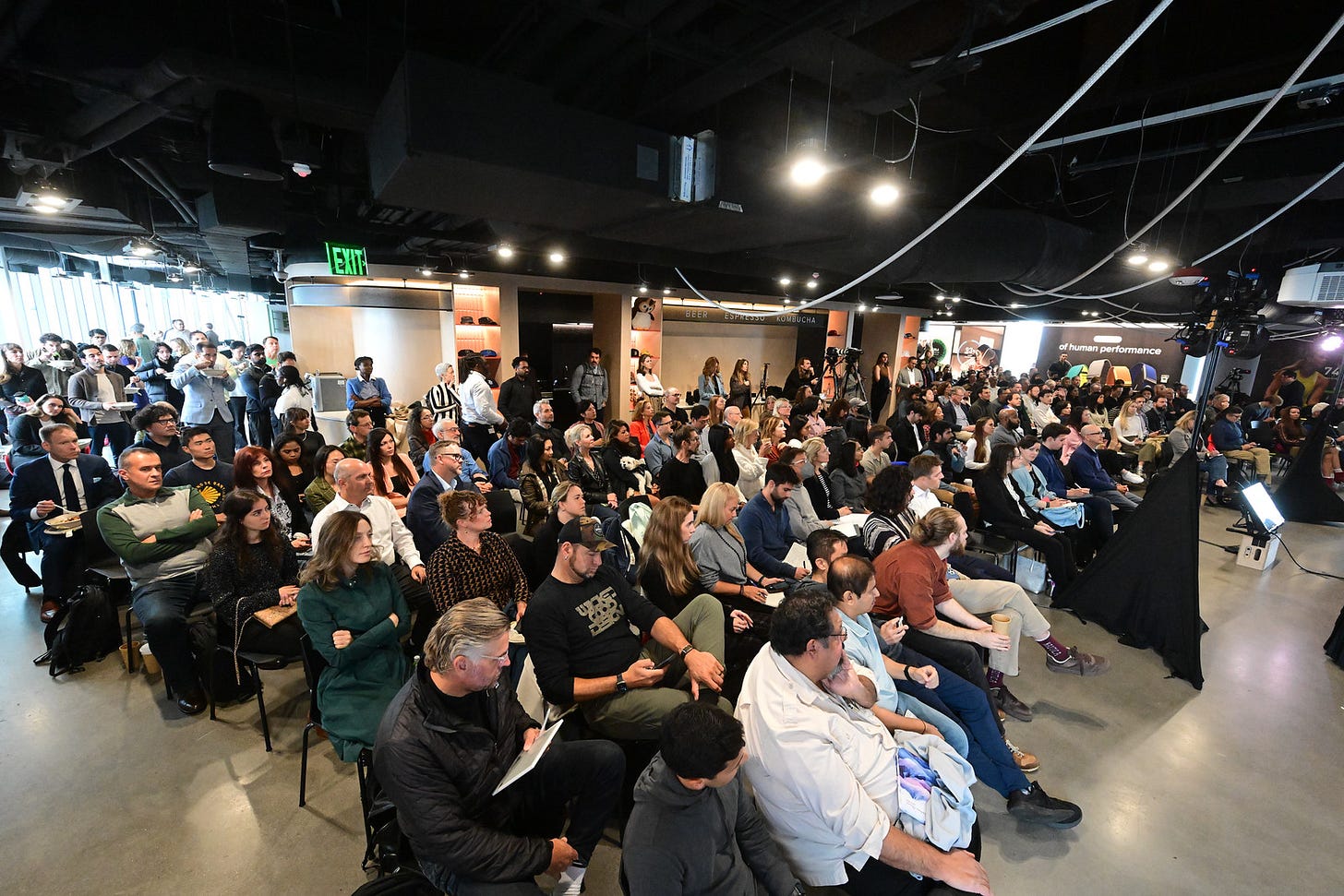#9 Five Takeaways from TEDx Longevity 2025
I spent the day at TEDx Longevity and walked out with equal parts urgency, pragmatism, and real optimism. Here are five big ideas I heard that you might not expect.
Longevity can feel like a moonshot or a marketing slogan, depending on what you think. At this week’s TEDx Longevity, it felt like something else: a field growing up. From pharma to ethics to entrepreneurship, different speakers mapped practical paths forward from different domains. And while “solving aging” is still decades out, the near-term implications are clear: prevention, daily habits, and real bridges across healthcare’s silos.
For builders, investors, and anyone who wants to feel better in 30 years (and tomorrow morning), here are five ideas that actually matter now.
1) Most people don’t think slowing aging is “worth it.” That’s a problem.
One of the most striking ideas for me wasn’t scientific at all. Carolyn Baker Ringel highlighted polling that showed that more than half of Americans believe medical treatments that slow aging and extend life by decades would be bad for society.
The basis for objection can be clustered into three buckets:
Justice & resources: “Only the wealthy would benefit from such a technology, and extended human lives would only strain the planet and our systems.”
Social structures: “Our institutions (retirement, labor markets, family dynamics) aren’t designed for 100-year health spans.”
Existential meaning: “Finitude gives life purpose and longer lives dilute that.”
Carolyn elegantly went one by one to highlight the inherent pessimism of these objections. Social structures have always evolved with changing health and economic realities (see the evolution of age of first childbirth), and we should be confident that we will be able to adapt to a society where we all live healthier longer. Researchers have shown that the corresponding value for a 10-year increase in life expectancy is $366.8 trillion, translating to 33.6% of the 2019 GDP. Humans use technology to improve life across the board; aging shouldn’t be the exception.
2) We are decades away from “solving aging.”
Multiple speakers drew a bright line between modifying our trajectory of aging versus reversing it. Yes, we can shift risk trajectories and improve late-life function. But the bolder claims—“aging reversal achieved!”—are not where consensus science sits today and unfortunately we are still decades away.
Matt Kaeberlein pointed out the humbling fact that in animal models, interventions like caloric restriction (that were researched in 1986) are still outperforming headline-grabbing interventions like rapamycin today. Despite the hype, a sober read of the data is needed to keep our expectations grounded.
3) Don’t “solve aging.” Don’t even “cure cancer.” Start with your heart and your mouth.
If you want a near-term longevity stack, look across your key organs:
Cardiovascular health is table stakes, as it’s one of the strongest predictors of life expectancy. Amit Bhatt shared that if you can only fix one thing about your cardiovascular health, fix blood pressure. Roughly half of adults have hypertension and many don’t know it, so be sure to check on your blood pressure, even if you don’t feel symptoms. Until there’s a validated, scalable “longevity drug,” keeping arteries healthy is the highest-leverage move.
Dental/oral health is a systems problem, not a cosmetic one. Mariya Filipova shared that periodontitis is one of the most common treatable diseases and oral health is linked to or contributes to 8 of the top 10 causes of death. Saliva is emerging as a rich screening medium, and dentists, whom many people see more regularly than their doctors, could become front-door stewards of whole-person health. Stephen Thorne from PDS Health shared how the company is enabling the use of saliva as a means to detect disease and unlock dental-medical integration. If we want affordable longevity, integrating oral health into primary prevention is low-hanging fruit.
4) For simple interventions that change your life today, fix your circadian clock.
Satchin Panda is a world expert on the circadian rhythm, and turns out circadian strength touches immunity, cellular repair, cognition, metabolism, even how you respond to chemo (chronomedicine is coming to the clinic).
For your daily life, here are three levers to learn the circadian rhythm:
Light: Aim for >1 hour of daylight exposure every day. Light timing is medicine, especially for older adults with fragmented sleep or dementia symptoms.
Feeding window: Consistent with time-restricted eating, eating within a 10-12 hour window can nudge metabolic pathways toward repair and act in similar ways caloric restriction can.
Exercise timing: Late-afternoon exercise tends to produce better performance and lower injury risk.
To help you implement these changes today, Satchin has developed an app myCircadianClock to help users adopt these habits through simple nudges on the app.
5) There is still reason to dream: every one of us has already been through a “de-aging event.”
Surprising fact from David Sinclair: at the embryo stage, around day 7 of our lives, the developing organism resets its age to zero, likely via epigenetic reprogramming. That’s not sci-fi; it’s developmental biology. This means that we all have experienced a “de-aging” event to be born.
Building on that insight, Sinclair’s lab is testing OSK-based partial reprogramming that reverses age in specific tissues (retina, liver, kidney, peripheral nerves) in animals, with first human data expected in 2026. Teams are also using AI to search for small molecules that could induce OSK-like effects—potentially compressing timelines from years to weeks-scale tissue rejuvenation, if safety/precision pan out. This is high-risk, high-reward, and it’s exactly the kind of moonshot society should support alongside near-term prevention.






This helped add clarity to a much hyped area.
I'm all-in on trying to become my healthiest self, but sometimes I wonder if I'm just chasing trends or if there's real substance behind it all.
Your piece gave reasons to be both excited and sober about the data - which feels like exactly the right posture. Thanks for the grounding and the inspiration in equal measure.